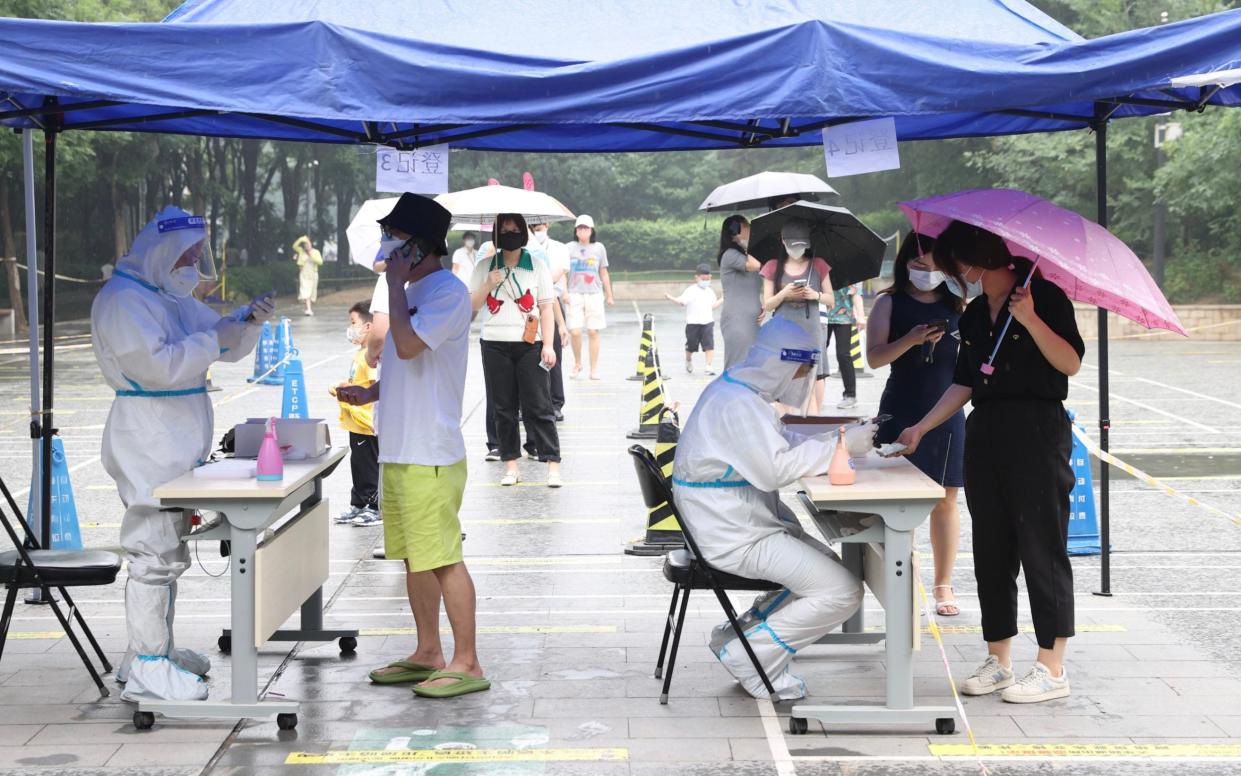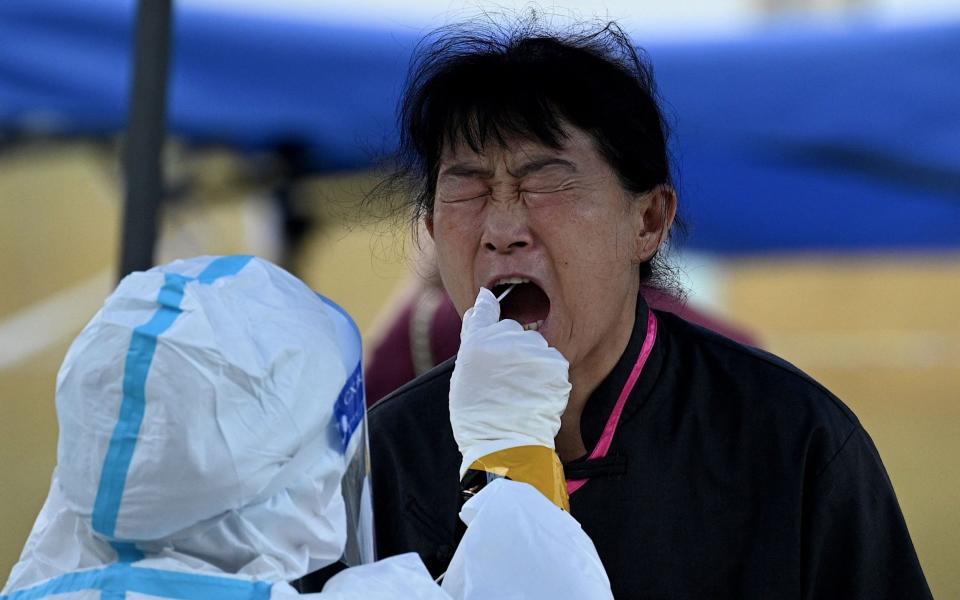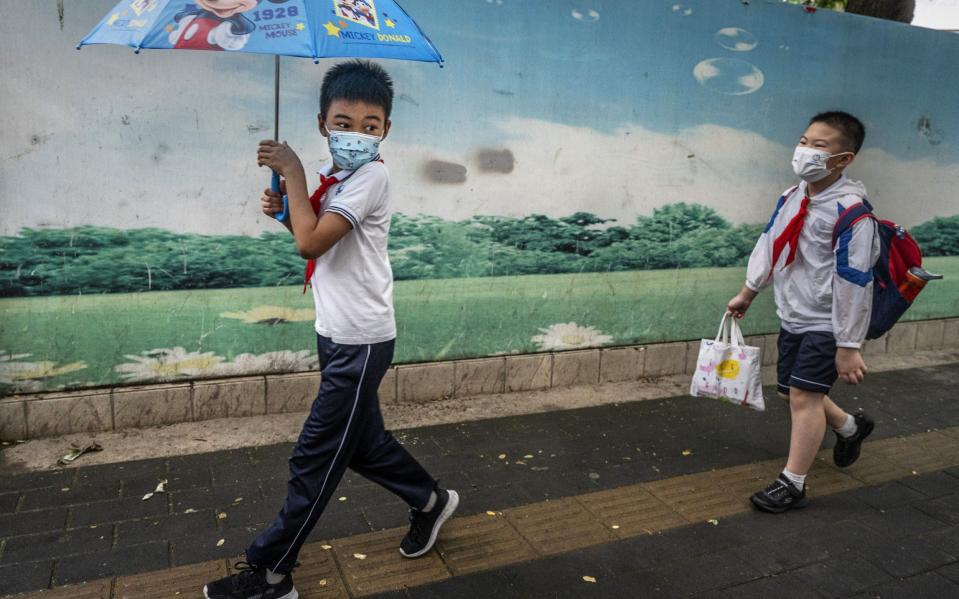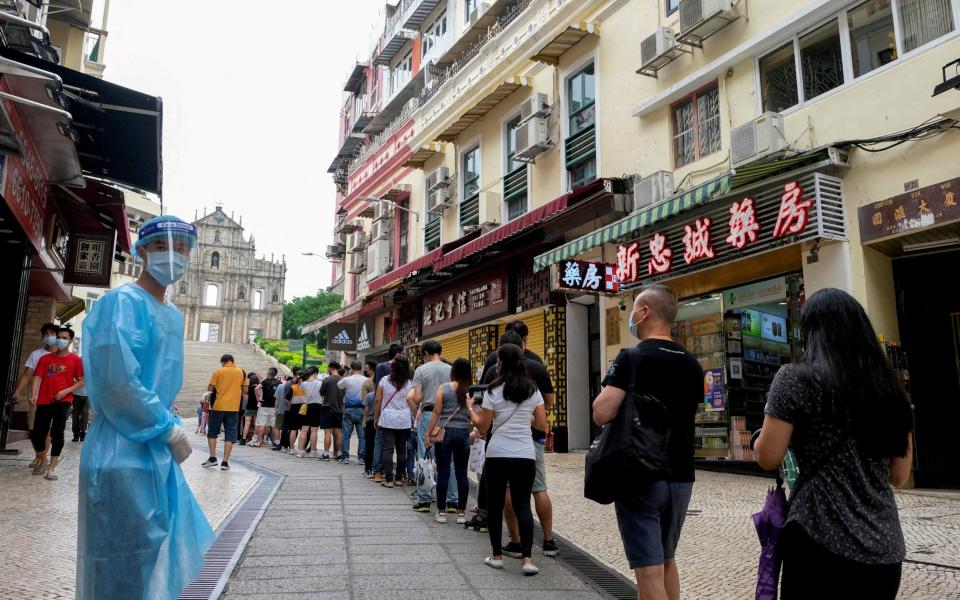Beijing declares zero-Covid policy will last another five years then backtracks

China’s draconian zero-Covid policy could last for another five years, state media suggested – provoking widespread condemnation.
The Chinese Communist Party secretary for Beijing said measures including mandatory mass testing and travel curbs would stay in place for another half a decade.
“In the next five years, Beijing will unremittingly grasp the normalisation of epidemic prevention and control,” read a statement, published by the state-run newspaper Beijing Daily and redistributed by other outlets.

The article was widely shared on social media, where people reacted with anxiety and outrage before it was altered later on Monday, with the reference to “five years” removed. The discussion was also initially censored on Weibo, China’s version of Twitter.
Newspaper’s ‘mistake’
Zhao Jingyun, the president of Beijing Daily, later said it had all been a “mistake” by the newspaper’s staff.
“I can authoritatively state the words ‘for the next five years’ were not in the original report and were added by our reporters by mistake,” Mr Zhao wrote in a post on the messaging app WeChat.
He added the editors “wanted to rush the deadline, so they took apart the key points in the report and made a template in advance”.
“This is indeed an operational error at the media level,” Mr Zhao said. “It’s OK to say that our people lack professionalism. In short, I hope everyone will stop using false rumours to magnify this mistake.”
Xu Xijin, a well-known political commentator and former editor of state-run tabloid Global Times, said he had seen Mr Cai’s original statement, and it did not convey the lockdown – which has included orders to work from home and dine-in bans – would last for another five years.

‘We almost can’t stand it anymore’
Nevertheless, internet users decried the confusion and expressed anxiety over the policy’s future. China’s strict zero-Covid measures, meant to curb the spread of the omicron variant, have led to lockdowns in multiple cities this year, including in Beijing and Shanghai - dragging down the economy and inflicting physical and emotional strain on millions of people.
“If ‘the next five years’ part were indeed true, I don’t know how we can survive,” one Weibo user wrote. “We almost can’t stand it anymore already.”
Other internet users questioned the veracity of Mr Zhao’s statement, implying he was covering a slip-up by authorities.
“The good news is the ‘next five years’ part is wrong,” one Weibo user wrote. “The bad news is this might last longer than five years.”

Personal data collected
The incident comes as critics and rights activists fear China is increasingly using Covid-related curbs to stamp out dissent ahead of an important party congress in the autumn and beyond.
Five officials in the central city of Zhengzhou were punished last week after it was revealed they had used Covid apps to prevent people from using transportation and entering buildings such as banks, hotels and stores.
An investigation last week by the New York Times showed China is aiming to collect a vast amount of personal data from everyday citizens, including by using facial recognition technology, iris scans and Wi-Fi sniffers that can track mobile phones’ locations, as well as voice prints and DNA samples.
An analysis by The Times of more than 100,000 government bidding documents showed the country not only operates half the world’s nearly 500 million surveillance cameras, but has started installing audio recording devices next to street cameras to collect audio samples within a 300ft surrounding radius.
Police have also been found to collect DNA samples from men on a large scale, with orders in certain regions for every man in every family to have their probes collected and stored.
